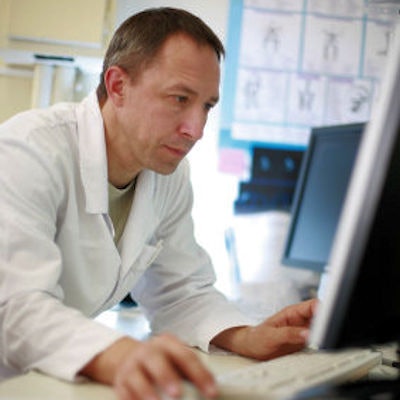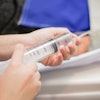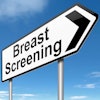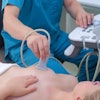
Cancer screening rates are lower in patients who see their primary care doctors later in the day compared with patients who see their doctors earlier, according to a new study published online May 10 in JAMA Network Open.
The trend may be the result of "decision fatigue" as the day goes on among primary care physicians (PCPs) who are key to recommending screening exams for their patients, wrote researchers from the Perelman School of Medicine and the Wharton School, both at the University of Pennsylvania.
"The U.S. Preventive Services Task Force guidelines recommend that primary care physicians offer breast and colorectal cancer screening to eligible patients during clinic visits," lead author Esther Hsiang and colleagues wrote. "However, as the clinic day progresses, primary care providers may fall behind schedule, and this may result in shorter and more rushed interactions with patients scheduled later in the day. As the clinic day progresses, PCPs may also face decision fatigue, which is defined as the depletion of self-control and active initiative that results from the cumulative burden of decision-making."
Hsiang and colleagues used data from 33 Pennsylvania and New Jersey primary care practices between 2014 and 2016. The group assessed ordering rates for breast and colon cancer screening exams, tracking whether patients underwent screening within a year of their appointment. The study included 19,254 patients eligible for breast cancer screening and 33,468 patients eligible for colorectal cancer screening.
The group found the following:
- 64% of primary care doctors ordered breast cancer screening exams for patients with appointments at 8 a.m., compared with 48% of those who met with patients at 5 p.m.
- 37% of primary care doctors ordered colon cancer screening tests for patients with appointments at 8 a.m., compared with 23% of those who met with patients later in the day.
- 33% of patients with 8 a.m. appointments had breast cancer screening exams within a year, while only 18% of those with appointments at 5 p.m. or later underwent breast cancer screening within a year.
- 28% of patients with 8 a.m. appointments had colon cancer screenings within a year, while only 18% of those with appointments at 5 p.m. or later underwent a colon cancer screening exam within a year.
Although screening test order rates decreased as the day progressed, the team did discover a temporary increase around midday: breast cancer screening orders dropped to 48.7% at 11 a.m., increased to 56.2% around 12 p.m., then fell again throughout the afternoon.
How can this trend be mitigated? One study has suggested building in a "nudge" in the electronic health record, said co-author Dr. Mitesh Patel in a statement released by the university.
"In past work, we've found that nudges in the electronic health record can be used to address these types of gaps in care, which we suspect will be the case here," he said. "Future research could evaluate how nudges may be implemented in order to improve cancer screening."




















